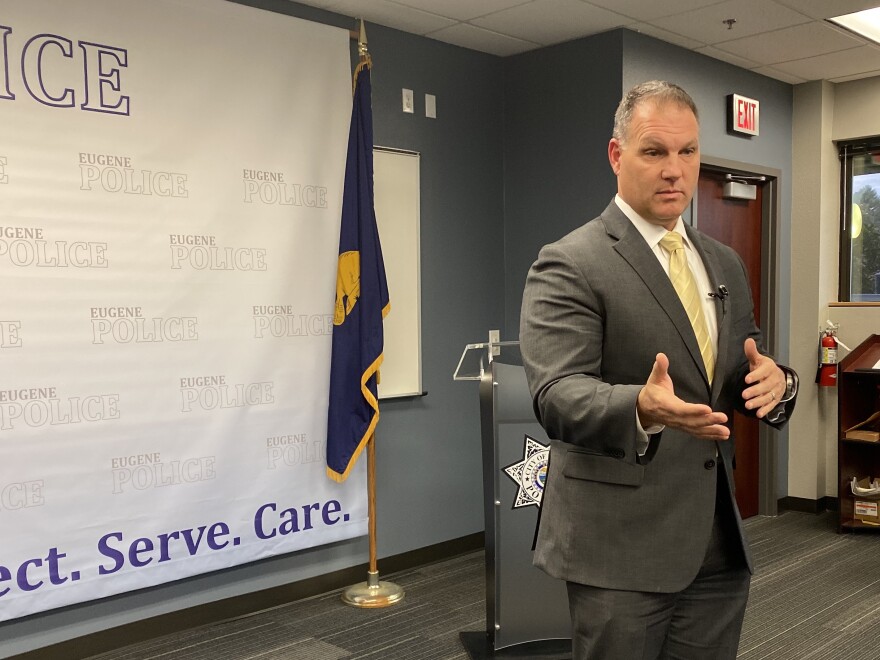In a city that is 86% white, racial bias by police officers is a concern. But the Oregon Criminal Justice Commission found that the Eugene Police Department does not conduct more traffic or pedestrian stops for people of color.
According to the Statistical Transparency of Policing Report, Eugene had the second highest number of stops that led to a search or an arrest. In the report, 8% of police stops in Eugene led to a police search and 7.5% of stops led to an arrest. This is higher than the state average of 4.3% of stops leading to searches and 4% leading to arrests.
Despite the high rates, the data collected between July 1, 2018 and June 30, 2019, shows Eugene is not disproportionately stopping people of color.
Eugene Police Chief Chris Skinner said he wants engaged police officers in the community making appropriate stops.
“Our goal is not to issue a bunch of citations or make a bunch of arrests,” said Chief Skinner. “That’s not our goal. Our goal is to have communication with our community and visitors in our community around their driving behavior and other kind of behavior. And in most cases, behavior can be changed with a warning.”
The Statistical Transparency of Policing Report was mandated through state law when House bill 2355 was passed in 2017. But Chief Skinner said EPD has been developing a similar program to track vehicle and pedestrian stops since 2012, through their Computer Aided Dispatch (CAD) record management system. The police chief said it can be difficult to make sure all of their data is going into the system.
“That's one of the challenges—is when you have an agency, our size—is making sure we have everybody participating and putting all of their data in that,” said Chief Skinner. “And so that's part of the training is, how do you leverage the technology appropriately? How do you get the buy in and get everybody to participate?”
He said he attributes the results in the report to their cultural sensitivity and implicit bias training, which aims to provide a fair and equitable police department.
“I do think good police departments try to do their own internal checks just to take the temperature of how things are going,” said Chief Skinner. “What we don't want to do is be asleep at the wheel. And then five years from now, wonder how we got to a place where we're, we're creating an inequitable and unfair practice in our policing with some of our minority community.”
Chief Skinner said they’re pleased with the report outcome and said the results confirm what their data collected. But he said there’s still more that can be done.
“This is not a destination type of conversation,” said Chief Skinner. “This is a journey conversation. Part of what's really important to us here at the Eugene police department is understanding that this is a moment in time. We're pleased with what the report reveals, however, there's always room to build more trust and confidence with this police department and the members of this community that it serves. Especially the marginalized community.”




